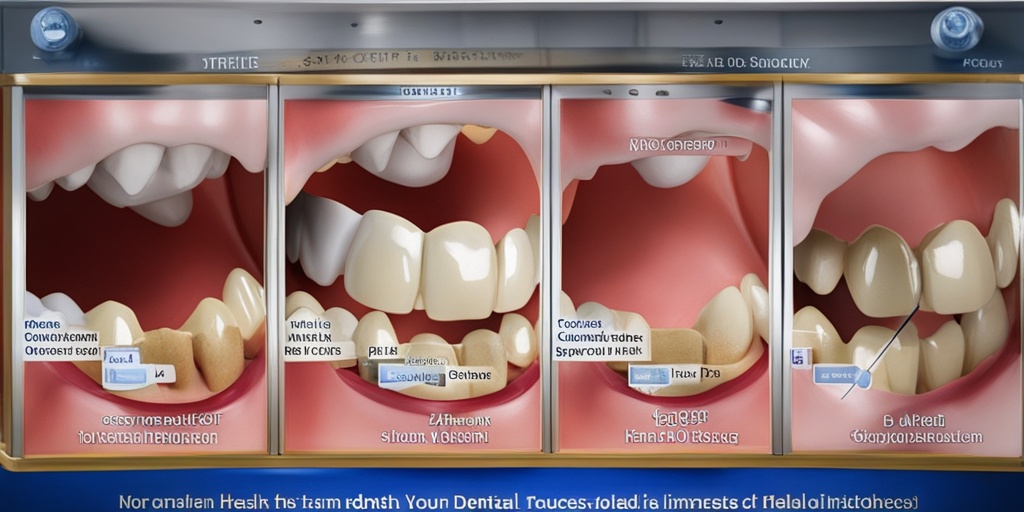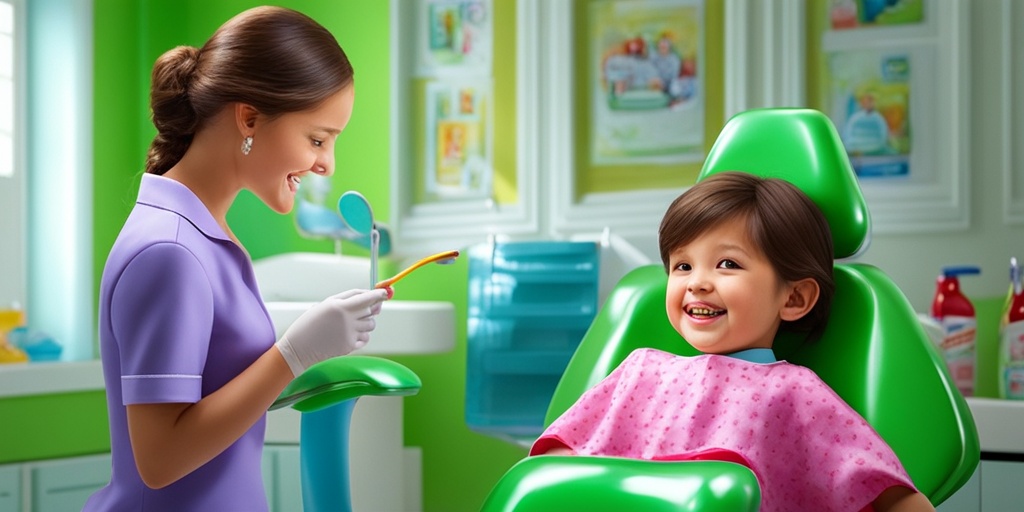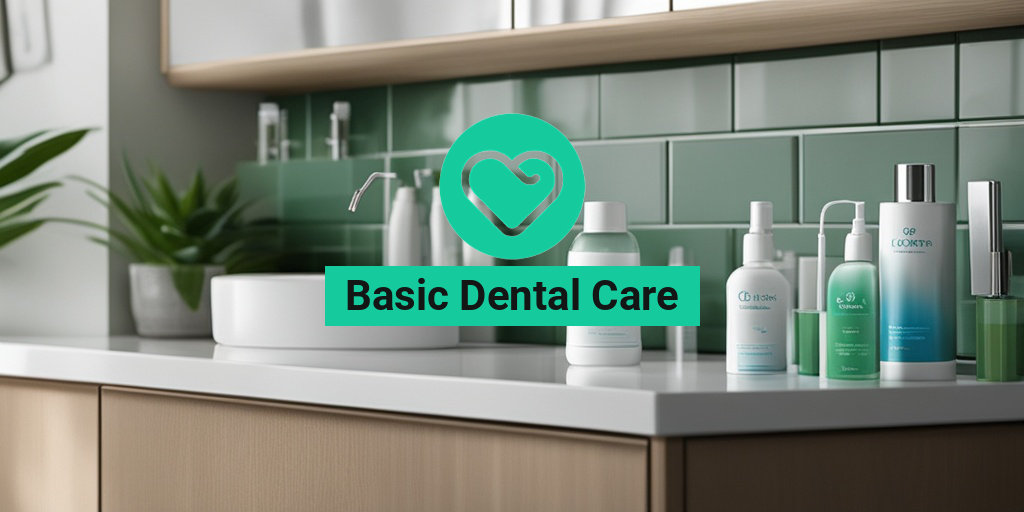“`html
What Is Basic Dental Care?
Basic dental care refers to the fundamental practices and procedures that individuals should follow to maintain good oral health. This encompasses a variety of activities aimed at preventing dental issues and ensuring that your teeth and gums remain healthy. Understanding basic dental care is essential for everyone, regardless of age, as it lays the foundation for a lifetime of healthy smiles.
Definition of Basic Dental Care
At its core, basic dental care includes daily habits such as brushing and flossing, regular dental check-ups, and a balanced diet. These practices help to prevent common dental problems like cavities, gum disease, and bad breath. By adhering to these basic principles, individuals can significantly reduce their risk of more serious dental issues in the future.
Examples of Basic Dental Care
- Brushing: Brush your teeth at least twice a day using fluoride toothpaste. This helps to remove plaque and prevent tooth decay.
- Flossing: Floss daily to clean between your teeth where a toothbrush can’t reach. This is crucial for preventing gum disease.
- Regular Check-ups: Visit your dentist at least twice a year for professional cleanings and examinations.
- Healthy Diet: Consume a balanced diet rich in fruits, vegetables, and whole grains while limiting sugary snacks and beverages.
- Use Mouthwash: Incorporate an antimicrobial mouthwash into your routine to help reduce plaque and gingivitis.
Basic Dental Care Services
Many dental clinics offer basic dental care services that include preventive treatments such as cleanings, fluoride treatments, and sealants. These services are designed to help maintain oral health and prevent the onset of dental diseases. If you’re unsure about what services are available, consider reaching out to your local dental clinic or checking resources like Yesil Health AI for more information.
Importance of Dental Hygiene
Maintaining good dental hygiene is not just about having a bright smile; it plays a crucial role in your overall health. Poor dental hygiene can lead to a variety of health issues, making it essential to prioritize your oral care.
Health Benefits of Good Dental Hygiene
- Prevention of Tooth Decay: Regular brushing and flossing help to remove food particles and plaque, reducing the risk of cavities.
- Gum Disease Prevention: Good dental hygiene practices can prevent gingivitis and periodontitis, which are serious gum diseases that can lead to tooth loss.
- Overall Health: Studies have shown a link between oral health and systemic health issues, such as heart disease and diabetes. Maintaining good dental hygiene can help mitigate these risks.
- Fresh Breath: Regular oral care helps to eliminate bad breath, boosting your confidence in social situations.
Consequences of Neglecting Dental Hygiene
Neglecting dental hygiene can lead to a host of problems, including:
- Cavities: Untreated cavities can lead to severe pain and may require fillings or even root canals.
- Gum Disease: Advanced gum disease can result in tooth loss and has been linked to other health issues.
- Increased Dental Costs: Preventive care is often less expensive than treating advanced dental problems, making regular check-ups a wise investment.
Conclusion
In summary, basic dental care is essential for maintaining good oral health and preventing serious dental issues. By incorporating simple practices like brushing, flossing, and regular dental visits into your routine, you can enjoy a healthier mouth and a brighter smile. Remember, your oral health is a vital part of your overall well-being, so take the necessary steps to care for it today! 😊
“`

“`html
Daily Dental Care Routine
Maintaining a basic dental care routine is essential for ensuring optimal oral health. A consistent daily regimen not only helps prevent dental issues but also promotes overall well-being. Here’s a breakdown of an effective daily dental care routine that you can easily incorporate into your life.
1. Brushing Your Teeth
Brushing your teeth is the cornerstone of any basic dental care routine. Here are some tips to make the most of your brushing:
- Frequency: Brush at least twice a day—once in the morning and once before bed.
- Technique: Use a soft-bristled toothbrush and fluoride toothpaste. Brush for at least two minutes, ensuring you cover all surfaces of your teeth.
- Angle: Hold your toothbrush at a 45-degree angle to your gums to effectively remove plaque.
2. Flossing
Flossing is often overlooked but is a crucial part of basic dental care. It helps remove food particles and plaque from between your teeth where your toothbrush can’t reach.
- Frequency: Floss at least once a day, preferably before bedtime.
- Technique: Use about 18 inches of floss, wrapping it around your fingers and gently sliding it between your teeth.
3. Mouthwash
Incorporating mouthwash into your routine can provide additional protection against cavities and gum disease.
- Type: Choose an antimicrobial mouthwash that contains fluoride.
- Usage: Rinse for 30 seconds after brushing and flossing to help kill bacteria and freshen your breath.
4. Regular Dental Check-ups
Even with a solid daily routine, regular visits to the dentist are vital for maintaining your oral health. Aim for a check-up every six months to catch any potential issues early.
Common Dental Problems
Despite our best efforts in basic dental care, dental problems can still arise. Understanding these common issues can help you take preventive measures and seek timely treatment.
1. Cavities
Cavities are one of the most prevalent dental problems, caused by the decay of tooth enamel due to plaque buildup. Symptoms may include:
- Toothache
- Sensitivity to hot or cold
- Visible holes or pits in teeth
2. Gum Disease
Gum disease, or periodontal disease, occurs when plaque builds up on teeth and leads to inflammation of the gums. Early signs include:
- Red, swollen gums
- Bleeding while brushing or flossing
- Persistent bad breath
3. Tooth Sensitivity
Tooth sensitivity can make eating and drinking uncomfortable. It often results from worn enamel or exposed tooth roots. Common triggers include:
- Hot or cold foods and beverages
- Sour or sweet foods
4. Bad Breath
Bad breath, or halitosis, can be caused by various factors, including poor oral hygiene, certain foods, or underlying health issues. To combat bad breath:
- Maintain a consistent dental care routine
- Stay hydrated
- Chew sugar-free gum to stimulate saliva production
5. Oral Cancer
While less common, oral cancer is a serious condition that can affect any part of the mouth. Regular dental check-ups can help in early detection. Be aware of symptoms such as:
- Unexplained lumps or sores
- Persistent pain in the mouth
- Difficulty swallowing
By understanding these common dental problems and adhering to a daily dental care routine, you can significantly improve your oral health and reduce the risk of complications. Remember, prevention is always better than cure! 🦷✨
“`

“`html
Preventive Dental Care
Preventive dental care is essential for maintaining good oral health and preventing dental issues before they arise. By focusing on basic dental care practices, individuals can significantly reduce the risk of cavities, gum disease, and other dental problems. Here’s a closer look at the key components of preventive dental care.
What is Preventive Dental Care?
Preventive dental care refers to the routine practices and treatments aimed at maintaining oral health and preventing dental diseases. This includes regular check-ups, cleanings, and education on proper oral hygiene techniques. The goal is to catch potential issues early and keep your smile healthy for years to come.
Key Components of Preventive Dental Care
- Regular Dental Check-ups: Visiting your dentist at least twice a year is crucial. These check-ups allow for early detection of issues and professional cleaning to remove plaque and tartar.
- Daily Oral Hygiene: Brushing twice a day and flossing daily are fundamental practices. Use fluoride toothpaste and a soft-bristled toothbrush to effectively clean your teeth.
- Healthy Diet: A balanced diet rich in vitamins and minerals supports oral health. Limit sugary snacks and beverages that can lead to cavities.
- Fluoride Treatments: Professional fluoride treatments can strengthen tooth enamel and help prevent decay, especially for those at higher risk.
- Sealants: Dental sealants are protective coatings applied to the chewing surfaces of back teeth, providing an extra layer of defense against cavities.
Benefits of Preventive Dental Care
Investing time and effort into preventive dental care can lead to numerous benefits:
- Cost-Effective: Preventive care is often less expensive than treating dental issues. Regular visits can save you money in the long run.
- Improved Overall Health: Oral health is linked to overall health. Preventive care can reduce the risk of conditions like heart disease and diabetes.
- Enhanced Confidence: A healthy smile boosts self-esteem and confidence, making social interactions more enjoyable.
Dental Care for Children
Establishing good dental habits early in life is crucial for children. Basic dental care for children sets the foundation for a lifetime of healthy smiles. Here’s how to ensure your child receives the best dental care possible.
The Importance of Early Dental Care
Children should visit the dentist by their first birthday or within six months of their first tooth erupting. Early dental visits help identify any potential issues and educate parents on proper oral hygiene practices.
Basic Dental Care Practices for Children
- Brushing Teeth: Teach your child to brush their teeth twice a day with a fluoride toothpaste. Supervise their brushing until they are about 7-8 years old to ensure they do it correctly.
- Flossing: Introduce flossing as soon as two teeth touch. This helps remove food particles and plaque from between teeth.
- Regular Dental Visits: Schedule dental check-ups every six months. These visits are essential for monitoring your child’s dental development and catching any issues early.
- Healthy Eating Habits: Encourage a balanced diet rich in fruits, vegetables, and dairy products. Limit sugary snacks and drinks to reduce the risk of cavities.
- Positive Reinforcement: Make dental care fun! Use rewards or praise to encourage your child to maintain good oral hygiene habits.
Common Dental Issues in Children
Being aware of common dental issues can help parents take proactive measures:
- Cavities: One of the most common childhood dental problems, cavities can be prevented with good oral hygiene and regular dental visits.
- Thumb Sucking: While common, prolonged thumb sucking can affect dental alignment. Consult your dentist for strategies to help your child stop.
- Teeth Grinding: If your child grinds their teeth, it’s essential to discuss this with your dentist, as it can lead to tooth wear and jaw pain.
By prioritizing basic dental care for children, parents can help ensure their kids grow up with healthy teeth and gums, setting them on the path to a lifetime of good oral health. 🦷✨
“`

“`html
Regular Dental Checkups
When it comes to basic dental care, one of the most crucial components is scheduling regular dental checkups. These visits are not just about cleaning your teeth; they play a vital role in maintaining your overall oral health.
Why Are Regular Checkups Important?
Regular dental checkups help in the early detection of potential issues. Here are some reasons why you should prioritize these appointments:
- Preventive Care: Regular visits allow your dentist to identify problems before they become serious. This can save you from painful procedures and costly treatments down the line.
- Professional Cleaning: Even with diligent brushing and flossing, plaque and tartar can build up. A professional cleaning removes these deposits, reducing the risk of cavities and gum disease.
- Oral Cancer Screening: Dentists often perform screenings for oral cancer during checkups, which can be life-saving if detected early.
- Personalized Advice: Your dentist can provide tailored advice on your specific dental care needs, including dietary recommendations and proper brushing techniques.
How Often Should You Visit the Dentist?
The general recommendation is to visit your dentist at least twice a year. However, some individuals may require more frequent visits based on their oral health status. Factors that may influence the frequency of your checkups include:
- History of Dental Issues: If you have a history of cavities or gum disease, your dentist may recommend more frequent visits.
- Age: Children and seniors may need more regular checkups due to their unique dental care needs.
- Medical Conditions: Certain health conditions, such as diabetes, can affect oral health and may necessitate more frequent dental visits.
Tips for Choosing Dental Products
With a plethora of dental products available on the market, selecting the right ones for your basic dental care routine can be overwhelming. Here are some tips to help you make informed choices:
1. Look for ADA Seal of Acceptance
When shopping for dental products, check for the American Dental Association (ADA) Seal of Acceptance. This seal indicates that the product has been evaluated for safety and effectiveness. Products with this seal are generally a reliable choice.
2. Choose the Right Toothbrush
Your toothbrush is a fundamental tool in your dental care arsenal. Here’s what to consider:
- Bristle Type: Opt for a soft-bristled toothbrush to avoid damaging your gums. Hard bristles can lead to gum recession and enamel wear.
- Size and Shape: Choose a toothbrush that fits comfortably in your mouth and allows you to reach all areas easily.
- Electric vs. Manual: Both types can be effective, but electric toothbrushes may provide a more thorough cleaning for some individuals.
3. Select the Right Toothpaste
Toothpaste is another essential component of basic dental care. Here are some tips for choosing the right one:
- Fluoride Content: Look for toothpaste that contains fluoride, as it helps to strengthen tooth enamel and prevent cavities.
- Specific Needs: If you have specific dental concerns, such as sensitivity or whitening needs, choose a toothpaste formulated for those issues.
- Flavor: While flavor doesn’t affect effectiveness, choosing a flavor you enjoy can make brushing more pleasant!
4. Don’t Forget About Mouthwash
Mouthwash can be a beneficial addition to your dental care routine. Here’s what to look for:
- Antimicrobial Properties: Choose a mouthwash that helps reduce plaque and gingivitis.
- Fluoride Mouthwash: Some mouthwashes contain fluoride, providing additional protection against cavities.
5. Consult Your Dentist
Finally, don’t hesitate to ask your dentist for recommendations on dental products. They can provide personalized advice based on your oral health needs and preferences.
By following these tips and maintaining regular dental checkups, you can ensure that your basic dental care routine is effective and tailored to your needs. Remember, a healthy smile is a happy smile! 😁
“`

“`html
Frequently Asked Questions about Basic Dental Care
What is Basic Dental Care?
Basic dental care refers to the fundamental practices and services that help maintain oral health. This includes regular brushing and flossing, routine dental check-ups, and preventive treatments to avoid dental issues.
Why is Basic Dental Care Important?
Maintaining basic dental care is crucial for preventing cavities, gum disease, and other oral health problems. Good oral hygiene can also contribute to overall health, as poor dental health is linked to various systemic conditions.
What are Examples of Basic Dental Care?
- Brushing teeth at least twice a day
- Flossing daily
- Regular dental check-ups (at least twice a year)
- Using mouthwash to reduce plaque
- Eating a balanced diet low in sugar
What is the Cost of Basic Dental Care?
The cost of basic dental care can vary widely depending on location, the specific services needed, and whether you have dental insurance. Routine check-ups and cleanings typically range from $75 to $200 without insurance.
Does Basic Dental Care Include Insurance?
Many dental insurance plans cover basic dental care services, including preventive check-ups and cleanings. It’s important to check your specific plan for details on coverage and any out-of-pocket costs.
What Basic Dental Care Services Should I Expect?
During a routine visit, you can expect the following basic dental care services:
- Comprehensive oral examination
- Professional teeth cleaning
- X-rays if necessary
- Fluoride treatments
- Advice on oral hygiene practices
How Can I Set Up a Basic Dental Clinic?
Setting up a basic dental clinic involves several steps, including obtaining the necessary licenses, hiring qualified staff, purchasing dental equipment, and creating a welcoming environment for patients. It’s essential to ensure compliance with local health regulations.
What Should I Do If I Need Dental Care but Have No Insurance?
If you find yourself in need of dental care without insurance, consider looking for community health clinics that offer basic dental care services at reduced rates. Some dental schools also provide affordable care through supervised student programs.
How Can I Maintain Good Basic Dental Care at Home?
To maintain good basic dental care at home, follow these tips:
- Brush your teeth twice a day with fluoride toothpaste
- Floss daily to remove plaque between teeth
- Limit sugary snacks and drinks
- Stay hydrated and drink plenty of water
- Visit your dentist regularly for check-ups
Are There Free or Low-Cost Dental Care Options Available?
Yes! Many communities offer free or low-cost dental care programs, especially for those in need. Check local health departments or non-profit organizations for resources available in your area. 🦷
“`




